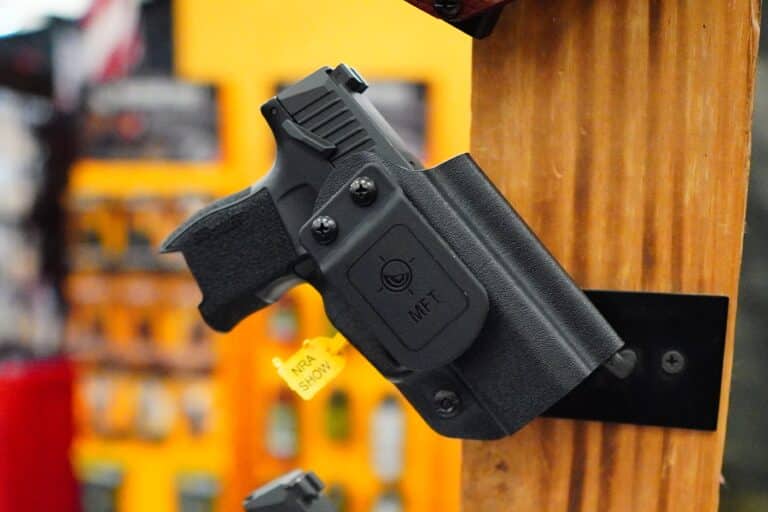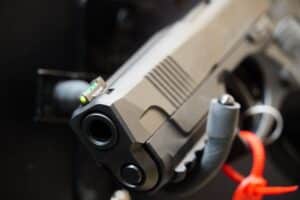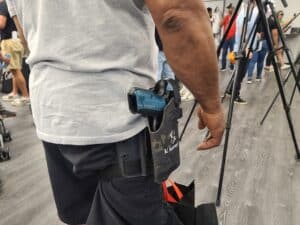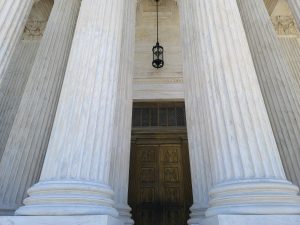Most of California will be off-limits for even licensed gun carriers as the new year begins.
That’s because of a stay issued by a federal appeals court that, at least temporarily, undoes a lower court ruling against the state’s sweeping new restrictions. The order allowed the state’s new “gun-free zones,” which cover most public places and even private stores, to go into effect at midnight on Monday. It will remain in effect until another Ninth Circuit Court of Appeals panel, which will hear the merits of the challenge to Senate Bill 2 (SB2), decides what to do with the case.
The panel that issued the stay did not explain why it did so in its order.
The stay raises the stakes of the appeal. US District Judge Cormac J. Carney, who struck down SB2 in December, did not grant a stay requested by California. So, had the appeals panel not acted, the new restrictions may have been held up at least until the appeal’s conclusion.
The fight over sensitive places restrictions, often called gun-free zones, has taken on new prominence since the Supreme Court struck down the subjective processes for issuing concealed carry licenses used by California and a handful of other states in 2022’s New York State Rifle and Pistol Association v. Bruen. The Court ruled carrying a gun in public for self-defense was protected by the Second Amendment and couldn’t be denied based on the subjective determinations of government officials. It also ruled states could restrict carry in certain sensitive places, such as schools or polling places. But it did not give a comprehensive list of what places qualify, instead telling courts to look to history.
“We therefore can assume it settled that these locations were ‘sensitive places’ where arms carrying could be prohibited consistent with the Second Amendment,” SCOTUS wrote in Bruen. “And courts can use analogies to those historical regulations of ‘sensitive places’ to determine that modern regulations prohibiting the carry of firearms in new and analogous sensitive places are constitutionally permissible.”
Judge Carney ruled California’s new restrictions were so numerous and broad that they amounted to a total shutdown of legal gun carry. He found no historical tradition of restricting gun carry in the challenged locations and argued many of the locations existed at the Founding without government-imposed gun bans.
“SB2’s coverage is sweeping, repugnant to the Second Amendment, and openly defiant of the Supreme Court,” Carney, a George W. Bush appointee, wrote in May v. Bonta. “The law designates twenty-six categories of places, such as hospitals, public transportation, places that sell liquor for on-site consumption, playgrounds, parks, casinos, stadiums, libraries, amusement parks, zoos, places of worship, and banks, as ‘sensitive places’ where concealed carry permitholders cannot carry their handguns. SB2 turns nearly every public place in California into a ‘sensitive place,’ effectively abolishing the Second Amendment rights of law-abiding and exceptionally qualified citizens to be armed and to defend themselves in public.”
California officials slammed Judge Carney’s ruling. Attorney General Rob Bonta (D.) argued his decision would make the state “less safe” by “allowing guns in places where families and children gather,” even though the ruling didn’t change how California previously regulated gun carry.
Conversely, Governor Gavin Newsom (D.) celebrated the stay of Carney’s “dangerous ruling.”
“Californians overwhelmingly support efforts to ensure that places like hospitals, libraries and children’s playgrounds remain safe and free from guns,” he said in a statement.
The plaintiffs who challenged SB2 expressed their outrage at the stay as well. Kostas Moros, a lawyer representing the California Rifle and Pistol Association, criticized the panel for effectively undoing the lower court’s ruling without explanation when it wasn’t required to act at all.
“Unlike some of our other cases that are trying to reverse unconstitutional laws that have been in place for years, May and Carralero merely preserve the current status quo,” Moros wrote on social media. “The administrative stay reverses that for no reason, besides maybe the motions panel hating the Second Amendment. They could have and should have handed it off without the stay.”
He warned the Ninth Circuit’s credibility with gun owners was at risk over the way it has treated challenges to gun laws.
“Whether the Ninth Circuit knows it or not, their legitimacy is on the line right now,” he said. “If gun rights plaintiffs can’t even keep an injunction that does nothing more than preserve the status quo – then the message is clear: we are not allowed to win, ever.”






